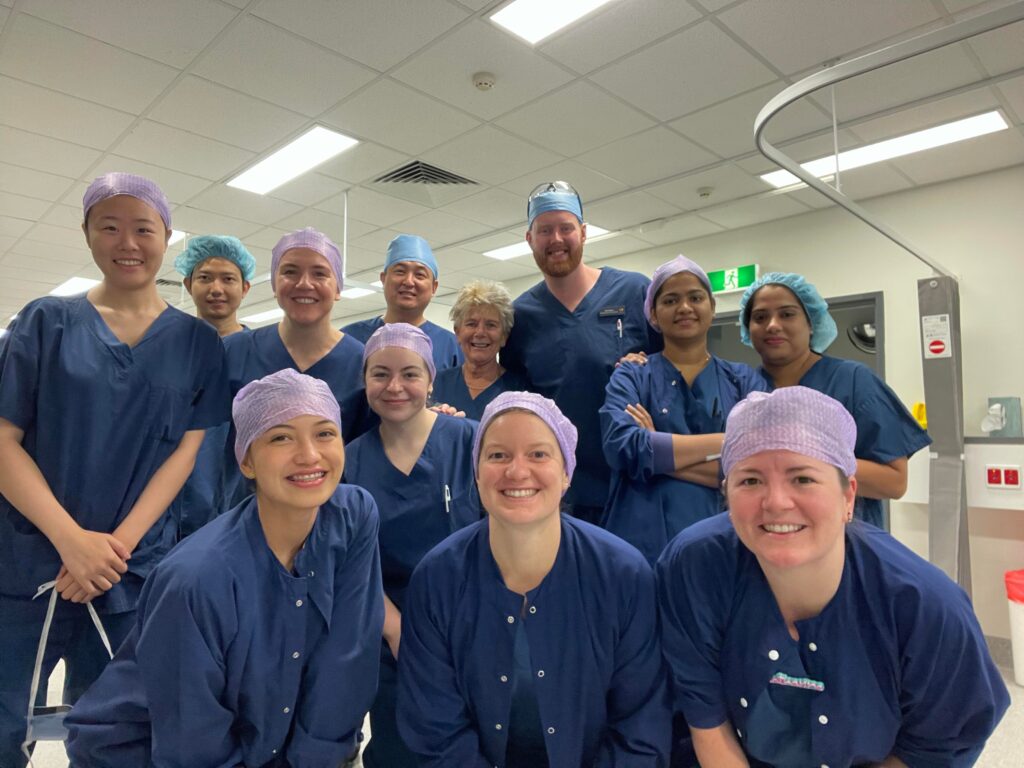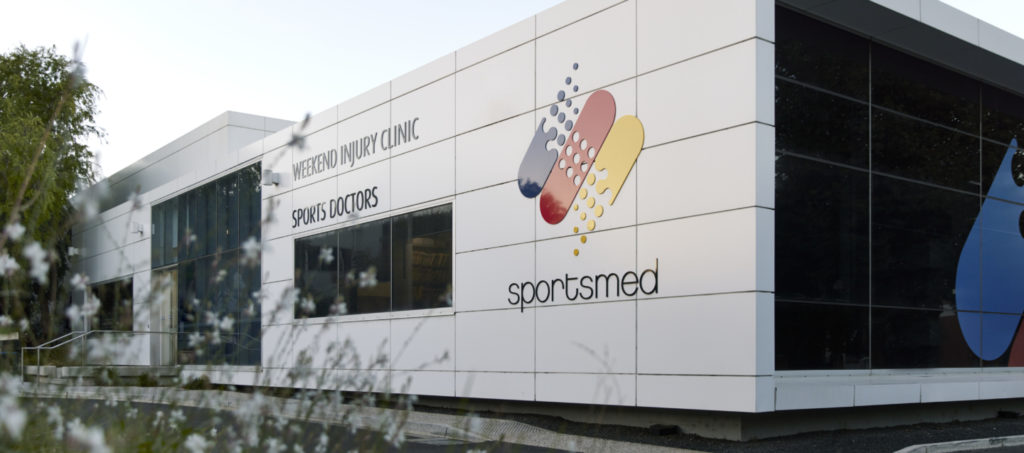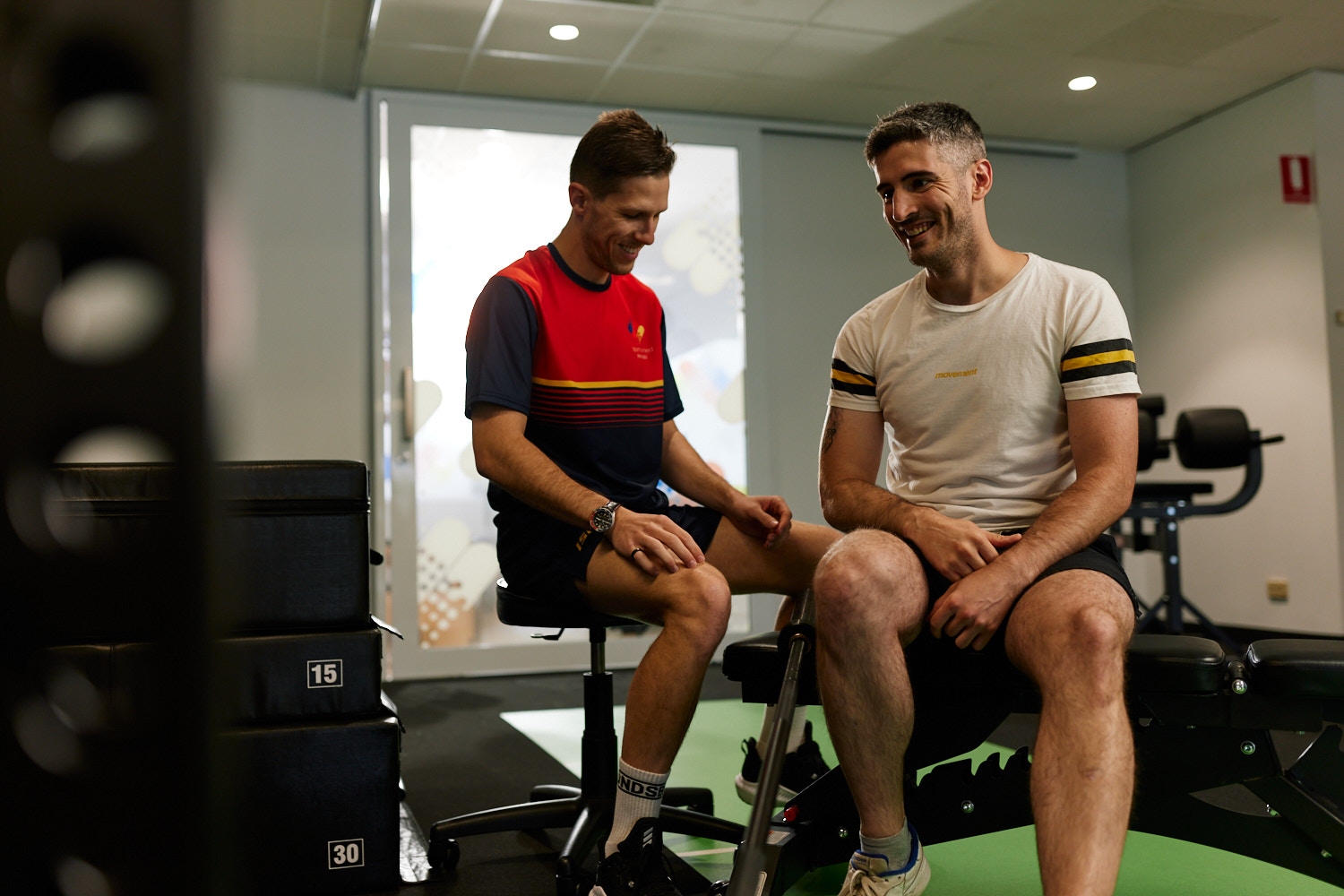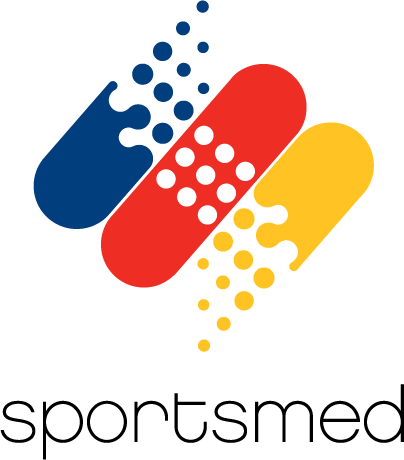Neuromuscular control training is the key to reducing the risk of lower limb re-injury rates for patients looking to complete a successful return to sport according to sportsmed Exercise Physiologist Matt Muir.
Encompassing both reflexes and voluntary muscle responses, neuromuscular control is critical to injury prevention.
Injuries such as muscle, tendon and ligament sprains and ruptures, are often the result of the body shifting beyond its normal range of movement. In the lower extremity (hip to toes), injury is regularly caused by movement of the knee inwards.
Muir suggests traditional rehabilitation programs, which feature an emphasis on strength and mobility following lower limb injuries such as ACL tears and ruptures, should incorporate neuromuscular control training and focus on reducing the risk of re-injury rates.
“Neuromuscular control training can increase strength of the knee joint and improve a person’s awareness of correct technique and balance.”
Matt Muir, sportsmed Exercise Physiologist
“While exercises such as squats, lunges, hamstring curls and dead lifts will improve your strength and mobility following injury, it is those based around neuromuscular control which have shown to have the biggest impact on reducing re-injury rates.
“Neuromuscular training is the missing link once people get back to sport and want to avoid injury recurrence.”
Muir points to the success of elite programs such as FIFA 11+ and KNEE, which both highlight the effectiveness of neuromuscular control training in lower limb injury prevention, particularly concerning the ACL.
FIFA 11+ is a comprehensive warm-up guide for soccer players, while Netball Australia’s KNEE program is intended to prevent serious knee injuries occurring on court.
Muir, who has extensive experience working with elite and semi-professional athletes and teams, believes its essential to offer the same treatment and care to patients at all levels of sporting competition.
“Neuromuscular training is common in elite sport however a weekend warrior does not get to experience its benefits as it’s not practiced at amateur level,” Muir said.
“Amateur athletes often return to sport with a high risk of re-injury because they don’t have that neuromuscular control, which could have been the mechanism behind why they did their knee in the first place.
“It’s pivotal such programs are introduced to help educate and train any type of sportsperson to avoid the risks of lower limb re-injury.”
Enhanced neuromuscular control is achieved by repeatedly performing certain movements correctly.
Controlled exercises that focus on jumping, landing, pivoting and agility can help to increase stability in the lower extremity and achieve correct knee biomechanics.
“Neuromuscular control training aims to improve a patient’s awareness and positioning, so they understand where their body is and what their body is doing,” Muir said.
“Training can include performing knee bends, turning under pressure, agility ladder, core and hip stability exercises, cone drills, side jumps and more.
“These activities can be modified and tailored to suit the characteristics of an individual and their particular sport and injury.
“Standard rehabilitation and gym programs will provide you with the strength to be able to jump for a ball again, but neuromuscular training programs will teach you how to land properly after the jump, thus reducing the re-injury risk.
“Current evidence suggests that for neuromuscular adaptations to occur this type of training is best completed over at least a four-week period with ideally two sessions per week.”
Muir recommends patients returning from ACL surgery must wait at least five months post-operation, before they can begin any form of neuromuscular training.
contact
If you would like more information about neuromuscular control training or wish to make an appointment with Matt, contact 08 8362 8122.



